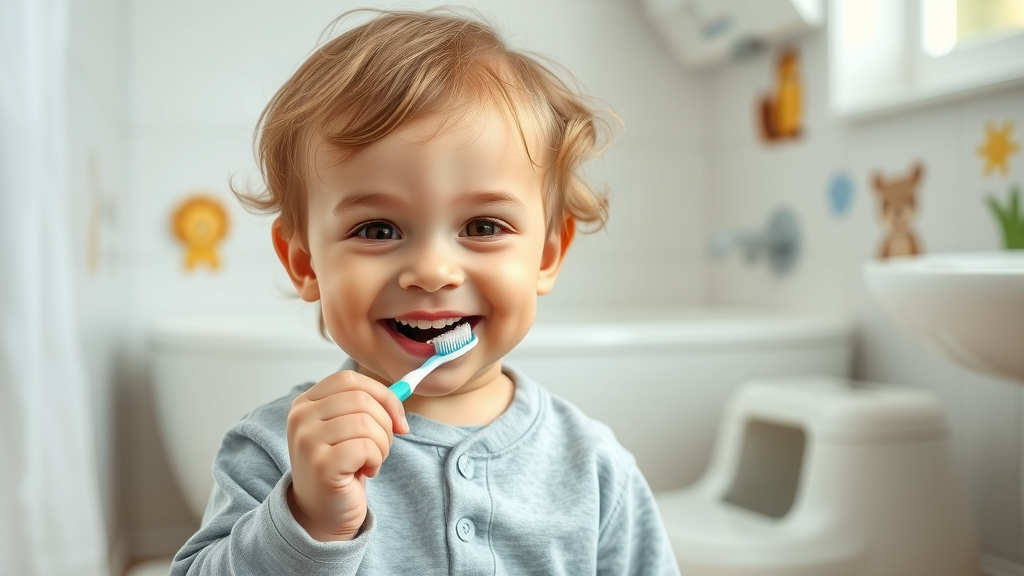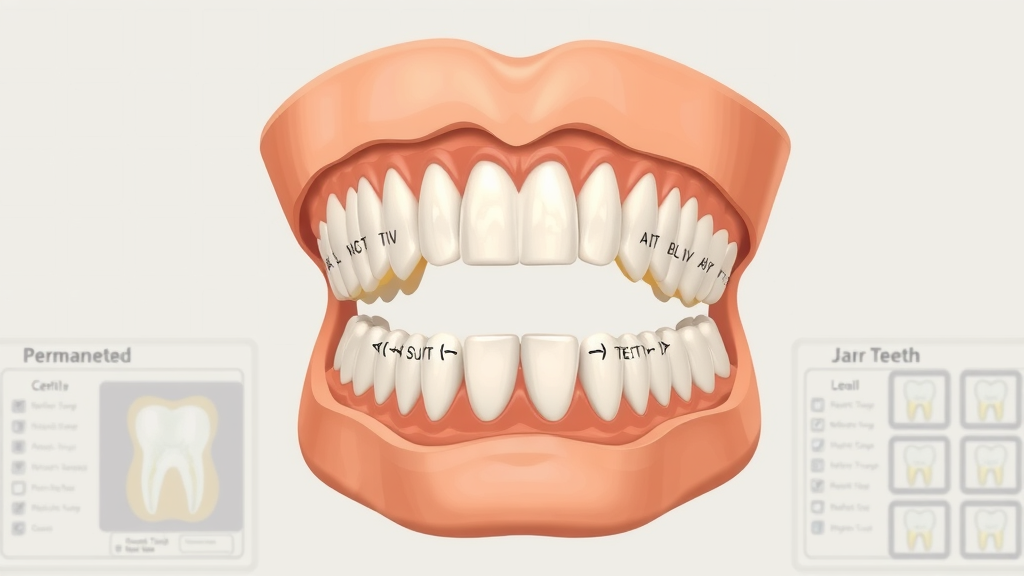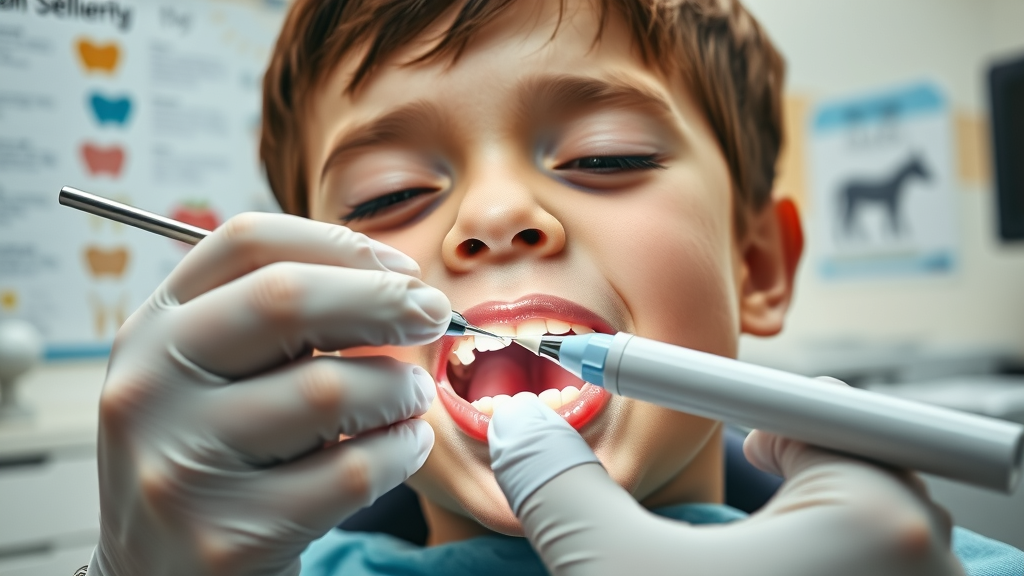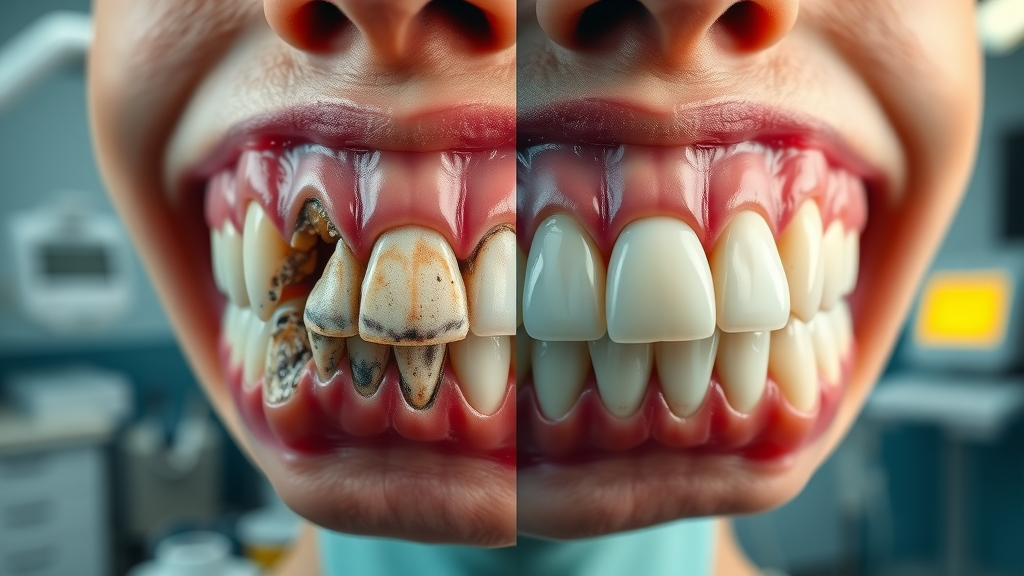Did you know that more than 40% of children have tooth decay in their baby teeth by the age of five? Many parents wonder why dentists recommend fillings for cavities in baby teeth, especially since these primary teeth will eventually fall out. The truth is, baby teeth play a much bigger role in your child’s health and development than you might imagine. Ignoring cavities can lead to serious problems, not just for their mouth today, but for permanent teeth in the future. Read on for expert-backed answers and tips every parent should know.
Did You Know? Over 40% of Children Experience Tooth Decay in Their Baby Teeth by Age Five
Tooth decay, also known as cavities, is one of the most common chronic childhood diseases. Despite their temporary nature, baby teeth are vulnerable to the same bacteria, sugars, and acids that damage adult teeth. If cavities are left untreated in these deciduous teeth, they can cause pain, infections, and may even threaten the development of permanent teeth under the gums. Early childhood caries can impact a child’s ability to chew, speak, and feel confident, affecting their overall wellbeing. This is why dental visits and early intervention by a dental professional are essential to maintaining both oral and overall health.
What You'll Learn in This Guide to Baby Teeth and Cavities
The critical functions of baby teeth in oral development
Why ignoring cavities in baby teeth can harm your child’s health
Common misconceptions about deciduous teeth and dental visits
Preventative dental care, including dental sealants and regular cleanings
Understanding Baby Teeth: Why They Matter Even Though They Fall Out
Many parents view baby teeth as disposable, assuming their only role is to "hold space" until permanent teeth come in. In reality, these early teeth are essential for more than just chewing. They help children develop clear speech, maintain proper nutrition, and guide adult teeth into the correct positions within the jaw. Healthy primary teeth ensure there’s enough space for larger permanent teeth to erupt in alignment, reducing the risk of orthodontic problems later on.
As children grow, having a full set of healthy baby teeth also helps shape the lower and upper jaw, supports the development of facial muscles, and allows for confident social interactions. When baby teeth are lost too early—often due to severe tooth decay—permanent teeth can drift, causing crowding or misalignment. This is why pediatric dentists emphasize early care for these temporary teeth.

How Baby Teeth Develop and Erupt
The journey of baby teeth begins long before birth, as tooth buds start forming deep within the gums during pregnancy. Typically, the first primary teeth begin erupting between 6 and 12 months of age—usually the lower central incisors, followed by their upper counterparts. By three years of age, most children have a full set of 20 deciduous teeth: four central incisors, four lateral incisors, four canines, and eight molars. The timing and sequence of eruption can vary slightly from child to child, but parents should keep an eye out for the first signs: increased drooling, gum swelling, and mild discomfort.
As the teeth erupt, they begin to shape the dental arches and aid in the development of the lower and upper jaw. This coordinated process ensures proper spacing and alignment for the eventual appearance of permanent teeth. It’s crucial to start health care routines early, like cleaning gums with a clean, moist gauze pad even before teeth are visible, to build healthy habits that last a lifetime.
For parents seeking more specialized guidance on children’s dental care, exploring the benefits of pediatric dentistry services can provide valuable insights into preventive strategies and tailored treatments for young smiles.
Deciduous Teeth vs Permanent Teeth: Key Differences
Deciduous teeth—also called primary teeth or "milk teeth"—hold several key differences when compared to permanent teeth. Structurally, baby teeth have thinner enamel and dentin, making them more vulnerable to tooth decay. The roots of primary teeth are also shorter and resorb as adult teeth develop underneath, which allows them to fall out more easily during the transition stage.
Permanent teeth, on the other hand, have thicker enamel, deeper roots, and are designed to last a lifetime. The careful timing of baby teeth loss and permanent teeth eruption supports proper jaw alignment and functional bite—crucial factors in speech, chewing efficiency, and overall dental health. Together, baby and permanent teeth play a synchronized role in facial development and self-esteem throughout early childhood into adolescence.

The Risks of Untreated Cavities in Baby Teeth: More Than a Temporary Problem
“Healthy baby teeth are essential for clear speech, proper chewing, and guiding the eruption of permanent teeth.” – American Academy of Pediatric Dentistry
Tooth Decay in Baby Teeth: Consequences Beyond Cavities
Ignoring tooth decay in baby teeth is not a risk-free choice. When left untreated, a decayed tooth can lead to pain, infection, and even abscess formation. In severe cases, dental infections may spread to developing permanent teeth, threatening their health before they even erupt. Chronic oral pain can make it difficult for children to eat healthy foods, potentially contributing to poor nutrition and stunted growth during critical years of age.
The impact doesn’t stop there. Tooth decay causing early loss of baby teeth can disrupt speech development, interfere with self-esteem, and increase the likelihood of crooked adult teeth due to shifting of other teeth in the jaw. This puts children at higher risk for orthodontic issues and more extensive dental interventions down the road—something that regular dental visits and prompt treatment can help avoid.
Potential for dental infections spreading to permanent teeth
Impacts on speech development and nutrition
Pain and abscess formation
Risk of misalignment as permanent teeth erupt

Why Fillings for Baby Teeth Are Necessary: The Answer Parents Need
Protecting Oral Development with Proper Cavity Treatment
Some parents ask: why bother treating cavities in baby teeth if they're just going to fall out? The answer is that addressing tooth decay quickly prevents pain and infection while protecting the essential roles these teeth play in development. Fillings restore decayed or damaged teeth so they can continue supporting sufficient spacing for permanent teeth, enabling children to eat, speak, and smile with confidence.
Timely cavity treatment ensures that deciduous teeth stay in place, acting as "placeholders" for the adult teeth growing beneath the gums. Avoiding interventions like early extractions lowers the risk of complications, such as improper eruption or malocclusion (misaligned bite). Pediatric dentists use special materials and techniques designed to ensure young children feel comfortable, paving the way for positive lifelong dental habits.

Preventing Future Dental Visits and More Severe Problems
Untreated cavities in deciduous teeth can quickly escalate into more severe dental problems that require emergency interventions. This includes painful abscesses, widespread infection, or even premature loss of baby teeth, which could necessitate orthodontic treatment down the line. Addressing minor dental issues early means your child will enjoy less invasive dental visits, fewer missed school days, and overall better health care.
Choosing to fill cavities instead of delaying treatment is an investment in your child’s current comfort and their future smile. Consistent attention to oral health now reduces the risk of expensive or traumatic dental procedures later—reinforcing the importance of regular checkups and prevention-focused care as a foundation for dental wellbeing.
Preventative Care for Baby Teeth: Dental Sealants, Fluoride, and Regular Dental Visits
Comparison of Preventative Measures for Baby Teeth |
|||
Preventative Measure |
How It Works |
Benefits |
Recommended Age |
|---|---|---|---|
Dental Sealants |
Protective coating applied to chewing surfaces of molars |
Shields deep grooves from bacteria and sugar, reducing cavity risk |
As soon as molars erupt (around 6 years of age) |
Fluoride Treatments |
Professional application of fluoride gel or varnish |
Strengthens enamel and helps prevent tooth decay |
Every 3–6 months, starting at first dental visit |
Brushing & Flossing Habits |
Daily cleaning with the correct technique and fluoride toothpaste |
Removes plaque, prevents cavities, and supports gum health |
Start as soon as first tooth erupts |
Regular Dental Visits |
Professional exams and cleanings for early detection and guidance |
Catches problems before they worsen; offers tailored oral health advice |
Twice a year, beginning by age 1 |

How Dental Visits and Habits Support Healthy Baby and Permanent Teeth
Establishing a schedule of regular dental visits—beginning around the first birthday—is one of the most effective ways to foster both healthy baby teeth and permanent teeth. Dental professionals can spot small issues before they become big problems, offer personalized tips for at-home care, and apply treatments like sealants or fluoride varnish when needed. Paired with twice-daily brushing using a soft-bristled brush, flossing when teeth start to touch, and a balanced diet, these visits set your child on the path to lifelong oral health.
Kids who see the dentist regularly form positive attitudes about oral hygiene and are less likely to develop dental anxiety. Teaching your child the “why” behind brushing and healthy snacks empowers them to take ownership of their dental wellbeing. Proper care in these early years supports strong, cavity-resistant adult teeth as they develop, contributing to self-confidence and vibrant smiles down the road.
Addressing Myths: Common Misconceptions About Deciduous Teeth and Cavities
Myth: Baby teeth don’t matter because they fall out
Fact: Baby teeth are essential for chewing, speech, and holding space for permanent teeth. Early loss can lead to long-term dental issues.Myth: Cavities in baby teeth don’t impact permanent teeth
Fact: Infection and decay in primary teeth can harm developing permanent teeth and cause painful oral health problems.Myth: It’s natural for baby teeth to get cavities
Fact: Tooth decay is preventable. Cavity-free childhood sets the stage for healthier adult teeth and minimizes dental complications.
Frequently Asked Questions About Baby Teeth
At what age do baby teeth come out?
Most children begin to lose their baby teeth around age 6, with the process continuing until about age 12 when permanent teeth finish erupting. This range varies from child to child, and it's perfectly normal for timing to slightly differ. Keep up with regular dental visits during this stage to ensure proper tooth development.

Why are they called baby teeth?
‘Baby teeth’ refers to the first set of teeth that develop in infants and toddlers. Also called deciduous teeth, they are meant to be temporary and eventually replaced by permanent teeth. Their essential roles—chewing, speech development, and guiding adult teeth—begin in early childhood.
Why does my 7 year old still have his baby's teeth?
It is common for some baby teeth to remain until age 12. The timing varies, and some children experience delayed loss of their baby teeth. Genetics, development of the permanent teeth below, and individual factors all play a part. If you have concerns, consult your pediatric dentist.
What are the first signs of baby teeth?
The first signs of baby teeth erupting include increased drooling, mild gum discomfort, and visible white spots along the gum line, typically happening around 6 months of age. These can be accompanied by irritability, restless sleep, and a tendency for babies to chew on toys or fingers.
Key Takeaways for Parents on the Importance of Baby Teeth
Untreated cavities in baby teeth can lead to pain, infection, and future dental issues
Fillings for baby teeth protect children’s health and support proper oral development
Dental visits, sealants, and healthy habits are key to long-term dental wellness
For Expert Pediatric Dental Care in Johnstown and Beyond
Contact Johnstown Dental Care at 370 West Coshocton St., Johnstown, OH 43031,
Phone: (470) 967-6046, or
visit www.johnstowndentalcare.com.
Proudly serving Johnstown, New Albany, Granville, Alexandria, Pataskala, and nearby areas.
Take action early—protect your child’s baby teeth with regular dental care, fillings when necessary, and preventive treatments to ensure a lifetime of healthy, confident smiles!
If you’re ready to take your family’s oral health to the next level, understanding the value of consistent checkups is key. Discover how a proactive approach to regular dental visits can help prevent issues before they start and support your child’s healthy smile for years to come. By staying informed and making dental care a routine part of your family’s life, you empower your children with the tools and confidence they need for lifelong wellness. Explore more expert tips and make every dental visit count toward a brighter, healthier future.
Understanding the significance of baby teeth is crucial for your child’s overall health and development. The article “The Importance of Baby Teeth” from the University of Iowa Health Care Stead Family Children’s Hospital highlights that these primary teeth are essential for proper chewing, speech development, and maintaining space for permanent teeth. (uihc.org) Similarly, the “Deciduous Teeth” entry on Wikipedia emphasizes that neglecting baby teeth can lead to infections affecting developing permanent teeth and may result in orthodontic issues due to misalignment. (en.wikipedia.org) If you’re serious about safeguarding your child’s oral health, these resources offer valuable insights into the critical role of baby teeth and the importance of their care.
 Add Row
Add Row  Add
Add 




Write A Comment